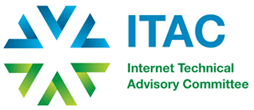 By Karen McCabe, Senior Director Technology Policy and International Affairs, IEEE Standards Association
By Karen McCabe, Senior Director Technology Policy and International Affairs, IEEE Standards Association
One of the four themes of the OECD Ministerial Meeting on the Digital Economy in June 2016 is building global connectivity and how to leverage the economic and social benefits from convergence to the Internet of Everything. In the context of the Internet of Things (or Everything) anything that happens, moves or changes produces data. Security and privacy are intimately linked. The link between data and ability to shape the lives of world citizens is stronger that ever with the use of evolving and new technologies and overall data driven innovation. The impact on the economy and society is tremendous. The impact on privacy and identity is concerning.
With this, there is a need for an inter-connected, informed collection of policies, standards and best practice so that data ownership, security and privacy concerns are holistically addressed and the business and societal benefits of data driven innovation is not hindered. Innovation in collaboration and engagement frameworks that are rooted in common values and principles will be critical—as will be embracing and accepting the geographical and cultural differences around privacy and identity. Global policies that promote responsible data use and data driven innovation, and that take into account identify management issues and practices, should be considered. Bridging industry, technical and policy communities across boarders will be essential to establishing building blocks for good data public policy.
So what are the building blocks?
First, we must consider that data alone do not possess inherent value. Instead it is the processing of data in innovative ways that brings new economic and social benefits, and this value creates a circle to feed into increased use of data-based decision making and analysis. In other words, it is the use of data that matters. With the rise of IoT, we are facing a data revolution. This data extends beyond a result of technology development or advancement and represents a new framework for understanding and interacting in the global economy.
To capitalize on opportunities for economic growth via innovation, flexible and adaptable policies are needed. Stakeholders should focus on using datasets responsibly and work to ensure that personally identifiable information is accessible only by those who are authorized to do so, without limiting innovation. In other words, privacy protection frameworks need to support secure and reliable data flows while enhancing responsible, risk-reducing behavior regarding the use of personal data.
The building blocks will be a combination of tools, processes and paradigms that need to work together to create policies to promote responsible innovation while safe guarding against harmful practices and actors. Building blocks include programs that help stakeholders comprehend, coordinate and integrate principles of privacy, identity management and technology and standards development. This will identify commonalities and differences, and set the stage for how stakeholders may address gaps. Working in a paradigm that embraces openness, transparency and inclusiveness and where there is respectful cooperation, due process and broad consensus will generate synergies, which can lead to an open path for global expertise and insight to be shared and innovated upon.
A core building block will connecting technology experts with policy experts. A current challenge is that those in the technical community are not intimately involved in the technology policy sphere—and those in the policy community are not necessarily fully engaged in the technology sphere. There is a gap between the technical community and policy community that is expected to grow as technology continues to rapidly advance. Today we are increasingly seeing new technology policy challenges coming onto the already complex IG, cyber-security and privacy scene, with the Internet of Things (IoT), smart grid, smart cities, intelligent transportation, eHealth, etc. – and all experiencing the issues of privacy and identity management.
The technical community can bring to bear values used in technology development—values of transparency, open discussion, protection of privacy, bottom-up development, transnational cooperation and consensus standards. It is critical for technology experts to become engaged in IG policy discussions since their expertise and insight could have significant impact to policy discussions, decisions and execution on a global scale. It is critical for those in the policy community to be informed by technologists about the state of technology.
